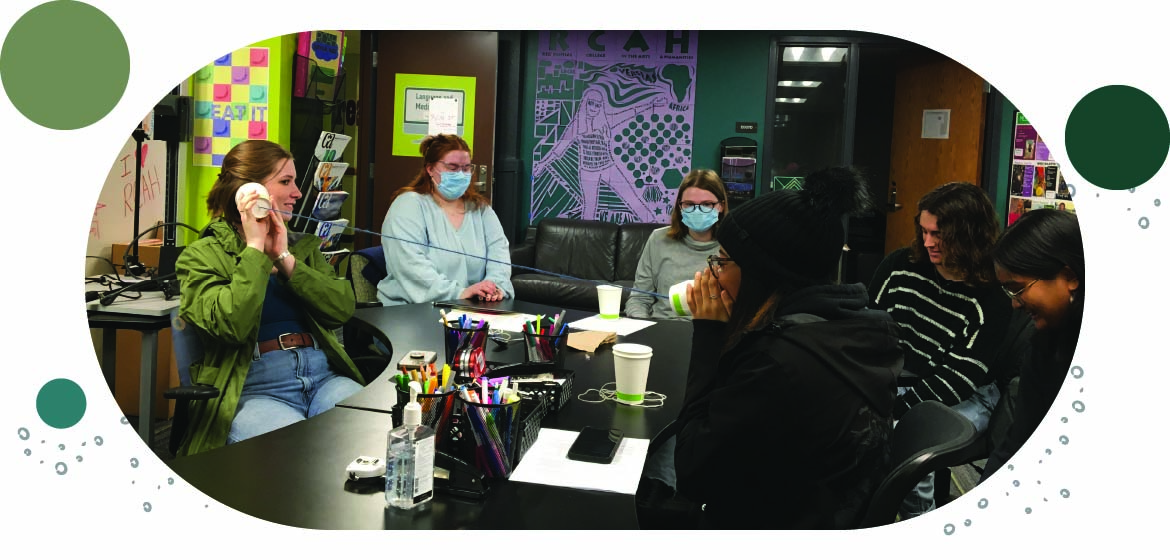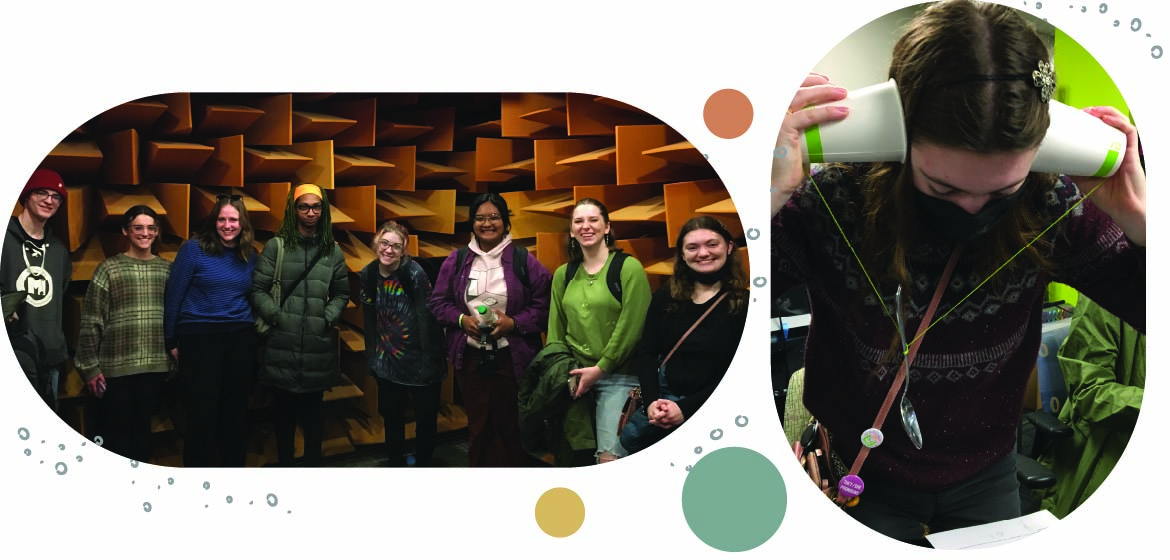Residential College in the Arts and Humanities Incarcerated Arts at Ingham County Youth Center
UN Goals: Quality Education

David McCarthy, a professor in the Residential College in the Arts and Humanities (RCAH), has always been aware of the division between academia and the community. In response, McCarthy has sought to bridge that divide by making the resources available to him at the university available to the community at large.
Through his undergraduate classes in RCAH, McCarthy’s students have been able to use art to connect with young people at the Ingham County Youth Center (ICYC). Students enrolled in RCAH 202, 215, or 315 work on projects such as caroling, arts and crafts activities, and minipodcasts with and for the youths at the center. Each semester McCarthy takes his classes for a visit to the ICYC.
“It gets the students outside of their comfort zone, and they have to deal with issues that they are largely sheltered from in the university,” McCarthy says.
The students take charge by thinking about how they can contribute and what their purpose is in the class and in doing this project. This practice helps develop the students’ ability to do creative work in a real-world setting. McCarthy hopes that this experience will spark students’ interest in community-engaged learning, and that this interest will carry over to the work the students do after they graduate.

The youths at the ICYC also benefit. These visits not only give young people a chance to talk with a community member, but they also provide an opportunity for them to explore and develop their own talents. That’s a privilege many of them miss out on when they are away from a traditional school setting.
“These are kids, they have all kinds of talents. And you don’t always know what they are,” says McCarthy. “Many of them are coming from situations where they haven’t had a lot of opportunities to show their talents or develop them.”
McCarthy hopes that in the future, this collaboration will allow for multiple visits to the ICYC in a semester. He would like to see the youths at the center be involved in the class projects from start to finish—joining in a listening party for the minipodcasts, for example.
McCarthy became affiliated with CCEL through workshops, which he has used to get feedback on his community-engaged work and to hear what others around campus are doing for community-engaged learning.


